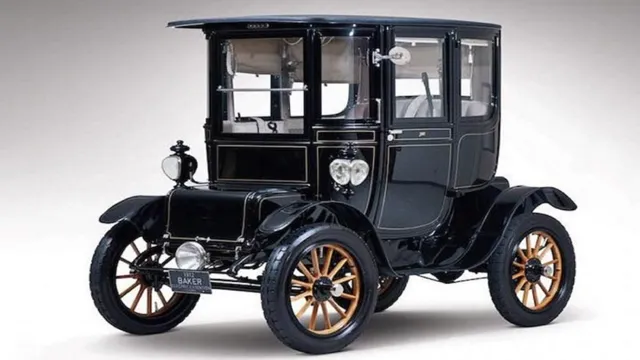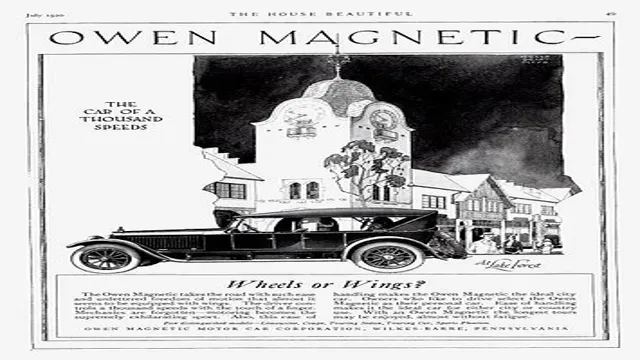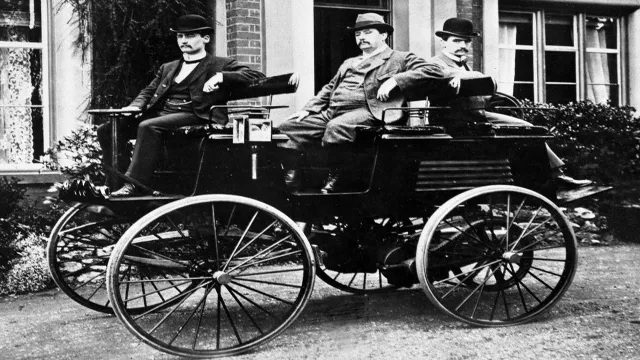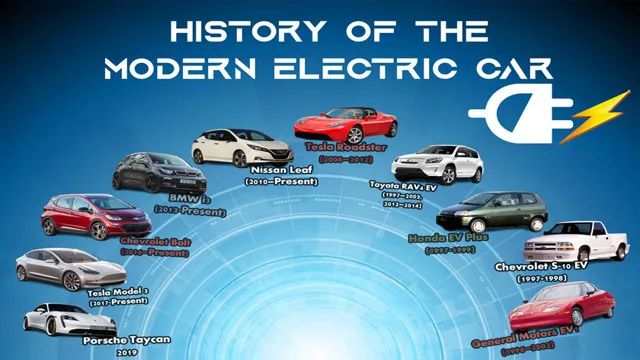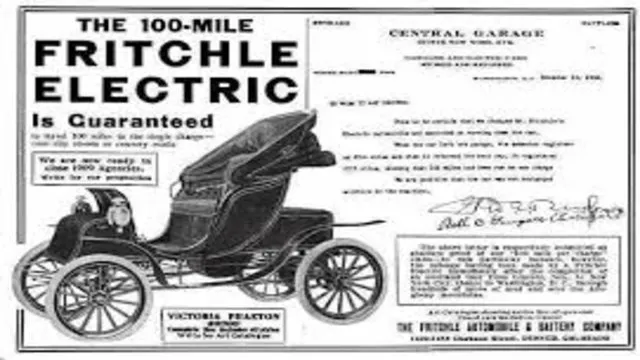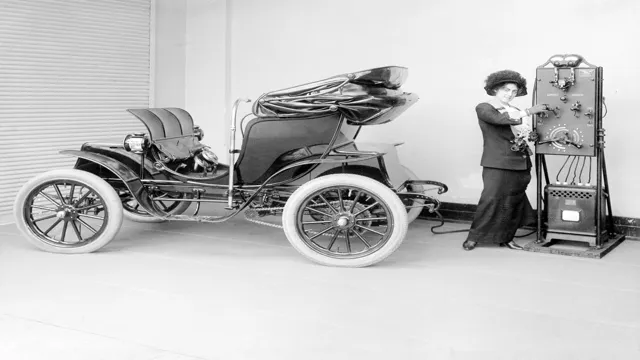The Shocking Evolution of Electric Cars: From 19th Century Curiosity to Modern Marvels
Electric cars are quickly becoming a popular option for those seeking a more sustainable means of transportation. But did you know that the concept of electric vehicles dates back over a century? That’s right – the idea of using electricity to power automobiles has been around for well over 100 years. In fact, the first electric car was built in the 1830s, well before the invention of the internal combustion engine.
But it wasn’t until the late 1800s and early 1900s that electric vehicles really gained popularity. During this time, electric cars were actually seen as a more practical option than gasoline-powered vehicles. They were quiet, easy to operate, and required minimal maintenance.
However, as the 20th century progressed and advancements were made in oil refining and gasoline engines, electric cars began to fall out of favor. It wasn’t until the 1990s that electric vehicles began to make a comeback. With concerns about climate change and the environmental impact of traditional gasoline cars, automakers began to invest in developing more efficient and sustainable electric technologies.
Today, electric cars are becoming more and more prevalent on our roads. And as our society continues to prioritize sustainability, it’s likely that we’ll see even more innovations in electric vehicle technology in the years to come.
Early Inventions
The history of electric cars dates back to the early 19th century when inventors first began experimenting with electric engines. In 1835, American inventor Thomas Davenport built the first electric car, which featured a small electric motor powered by batteries. However, the vehicle was not practical for everyday use due to the limitations of the battery technology at the time.
In 1870, British chemist Gaston Planté invented the lead-acid battery, which greatly improved the staying power of electric vehicles. This led to the first wave of electric cars in the late 19th century, with many cities installing electric streetcar systems. Despite this early success, the high cost of electric vehicles and improvements in gasoline-powered cars led to a decline in electric car production in the early 20th century.
It wasn’t until recently that electric cars regained popularity due to advancements in battery technology and the push for more sustainable transportation options.
The First Electric Vehicle
The history of the electric car dates back to the late 1800s, when inventors were experimenting with electricity and trying to find ways to harness its power. One of the earliest electric vehicles was developed in 1884 by a British inventor named Thomas Parker. Parker, who was already an accomplished engineer, began working on a battery-powered car after studying the work of his contemporaries, including Thomas Edison and Nikola Tesla.
Parker’s car was powered by a rechargeable battery that he had designed himself, and he demonstrated it to the public in London in 188 While Parker’s vehicle was not a commercial success, it paved the way for later electric cars and demonstrated the potential of electric power as a viable alternative to gasoline. Today, electric vehicles are making a comeback as concerns about climate change and the environment drive innovation in sustainable energy solutions.
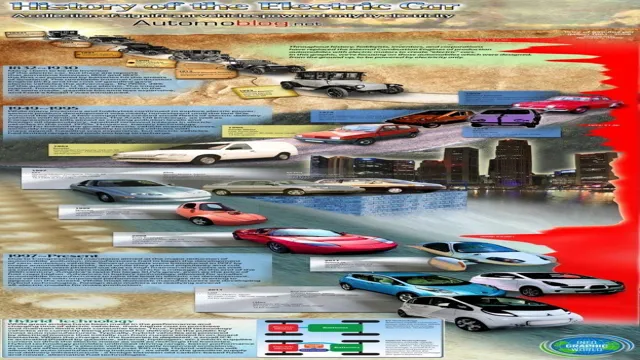
Development in the Late 19th Century
During the late 19th century, the world saw an explosion of inventions that transformed the way we live and work. Many of these early inventions paved the way for more advanced technologies that we use today. The invention of the telephone by Alexander Graham Bell in 1876 revolutionized communication and allowed people to connect with each other like never before.
The light bulb, patented by Thomas Edison in 1879, brought light into homes and workplaces, transforming the workday and allowing people to be more productive. The development of the steam engine in the early 1800s also revolutionized transportation, allowing goods and people to be transported across the country at unprecedented speeds. All of these inventions and many more had a tremendous impact on society, changing the way we live, work, and communicate.
As the world continues to develop and evolve, it’s important to remember the pioneers of the late 19th century who paved the way for the future.
The Rise and Fall of Electric Cars
The history of electric cars is a fascinating one, marked by periods of great innovation and excitement, as well as decline and neglect. The first electric cars were produced as early as the late 19th century, and were often favored by wealthy individuals for their quiet and smooth operation. However, the rise of gasoline-powered cars soon eclipsed the electric car market, and by the mid-20th century, they had all but disappeared from the roadways.
It wasn’t until the early 2000s that electric cars made a resurgence, with the introduction of the Toyota Prius and later, the Tesla Roadster. Today, electric cars are becoming increasingly popular as concerns about the environment and rising gas prices drive consumers to explore more sustainable transportation options. As technology continues to advance, the future of electric cars looks bright, with many predicting that they will soon become the norm rather than the exception on our roads.
Competition with Gasoline Vehicles
Electric Cars, Competition, Gasoline Vehicles, Rise and Fall Electric cars have been around for a long time, but they have always faced stiff competition from gasoline vehicles. While early electric vehicles were popular with urban dwellers for their quiet, emissions-free operation, they were expensive and had limited range. However, improvements in battery technology and the decreased cost of manufacturing have made electric cars more competitive in recent years.
As concerns over climate change and CO2 emissions grow, electric cars are becoming more popular among consumers. But it’s not all smooth sailing for the electric car industry. There are concerns over the environmental impact of battery production, as well as the availability of charging infrastructure.
Despite these challenges, the future of electric cars looks bright, providing that they can continue to compete with gasoline vehicles in terms of range, affordability, and convenience. The rise and fall of electric cars have been a matter of competition, but with new technological breakthroughs and growing environmental awareness, electric cars are poised for a comeback.
Decline in Popularity and Production
Electric cars enjoyed a brief period of popularity in the early 1900s, but they quickly lost favor to gasoline-powered vehicles, which proved to be faster and more accessible. In the 1970s, electric cars made a comeback due to environmental concerns, but their popularity was short-lived once again. The biggest issue with electric cars was their limited range, which made them impractical for most drivers.
Additionally, advancements in gasoline engines made them more efficient and less expensive to produce, further contributing to the decline of electric cars. However, in recent years, with concerns over climate change and rising gas prices, electric cars have once again gained popularity. The production of electric cars has also increased, with major automakers investing in electric technology and governments offering incentives for electric car owners.
While the future of electric cars seems bright, only time will tell if they will surpass gas-powered vehicles as the preferred mode of transportation.
Modern Electric Cars
If you’re interested in the history of electric cars, you’re in luck! Electric vehicles actually have a long and varied past, dating all the way back to the 19th century. However, it wasn’t until the past few decades that they really began to take off in popularity. In the modern era, we’ve seen the introduction of sleek and sophisticated electric cars like the Tesla Model S and the Nissan Leaf.
These vehicles are powered purely by electricity, with no need for gasoline or other fossil fuels. They’re environmentally friendly, with no tailpipe emissions, and they’re often incredibly efficient, with the ability to travel hundreds of miles on a single charge. So why haven’t electric cars completely taken over the market yet? There are a few reasons for this, including their relatively high price point and the continuing dominance of gasoline-powered vehicles in the mainstream market.
However, as more and more people become interested in sustainability and reducing their carbon footprint, electric cars are likely to become an increasingly viable option for everyday drivers.
Revival and Improvements
Modern electric cars are not only an environmentally friendly alternative to traditional combustion engine vehicles but also offer numerous benefits in terms of performance, convenience, and cost-effectiveness. With technological advancements in batteries and charging infrastructure, electric vehicles have become more efficient, affordable, and practical than ever before. Today’s electric cars can easily travel over 200 miles on a single charge and can be charged from 0 to 80 percent in less than an hour using the fast-charging stations.
In addition, electric cars require less maintenance and have fewer moving parts, reducing the cost of ownership over time. Furthermore, the availability of tax incentives, rebates, and other government programs makes owning an electric car even more affordable. As a result, electric cars are gaining popularity among consumers, and automakers are investing more in the research and development of electric vehicles to make them more competitive and accessible.
With these advancements, it’s safe to say that the electric vehicle revolution is here to stay, and it’s only going to get better from here!
Current Market Leaders
When it comes to modern electric cars, there are several market leaders that come to mind. Tesla, for instance, has been a trailblazer in the industry, introducing electric vehicles that boast impressive ranges and technology features. Their Model S and Model X vehicles are popular choices among consumers looking for luxury electric cars, while their Model 3 and Model Y options offer affordability and practicality.
Another company making waves in the electric car market is Nissan with their Leaf model. The Leaf, which was first released in 2010, has become the world’s best-selling electric car and offers a reliable and cost-effective option for those looking to go electric. Additionally, companies like BMW, Chevrolet, and Hyundai have all released electric car models with varying features and price points, making it easier for consumers to find an electric car that fits their needs and budget.
As the demand for sustainable transportation continues to grow, it’s exciting to see what new and innovative electric cars will emerge as market leaders in the years to come.
The Future of Electric Cars
If we look back in the history of electric cars, we can see that they were seen as a novelty rather than a truly effective mode of transportation. However, with advancements in technology and consumer demand for sustainable options, electric cars are becoming more popular by the day. In the future, we can expect to see even more innovation when it comes to electric cars, including longer battery life, faster charging times, and increased affordability.
With the advent of self-driving technology, we may even see completely autonomous electric vehicles on our roads. The future of electric cars certainly looks bright, and it’s no wonder that more and more people are opting for this eco-friendly alternative to traditional gas-powered cars.
Advancements in Battery Technology
Advancements in battery technology have opened the door for the future of electric cars. With new developments in lithium-ion batteries, electric cars can now go further and charge faster than ever before. This is a game-changer for the industry, as it addresses two of the biggest concerns that consumers have had about electric vehicles.
The increased range means that drivers can travel further without worrying about running out of power, and the faster charging times make it easier to recharge the car on long trips. Furthermore, research is being conducted on developing solid-state batteries that are even more powerful and efficient. These batteries have the potential to revolutionize the industry by offering even greater performance and safety than current battery technology.
With these advancements, the future of transportation could be bright, clean, and sustainable.
Potential for Widespread Adoption
Electric cars have the potential for widespread adoption as more and more people become environmentally conscious and seek ways to reduce their carbon footprint. The future of electric cars looks bright, with advancements in technology leading to longer battery life and shorter charging times. In addition, the availability of charging stations continues to expand, making it easier for drivers to recharge their vehicles on the go.
The affordability of electric cars is also improving, as manufacturers are producing more models and competition increases. The electric car market is set to explode in the coming years, with countries such as Norway, Germany, and the UK already leading the transition towards electric vehicles. With all these factors combined, it’s clear that electric cars are not just a passing trend, but rather a viable option that is here to stay.
Conclusion
In conclusion, the history of electric cars has been a rollercoaster ride of ups and downs. From their initial popularity in the early 20th century to their near extinction in the mid-20th century, electric cars have come a long way. With the increasing concern for the environment and sustainable transportation, electric cars are making a comeback in a big way.
The future of electric cars looks bright and promising as technology continues to evolve and improve. Who knows, in fifty years, we may all be driving electric cars that are not only eco-friendly, but also faster and more advanced than any other vehicle on the road. One thing is for sure, the history of electric cars is certainly an electrifying story!
FAQs
What is the history of electric cars?
Electric cars actually have a history that dates back to the early 1800s. However, it wasn’t until the late 1990s that they started to gain popularity due to advancements in battery technology and the need to reduce greenhouse gas emissions.
How do electric cars work?
Electric cars are powered by rechargeable batteries that are responsible for turning the electric motor. This motor then powers the wheels to move the car forward.
Are electric cars more expensive than gasoline-powered cars?
Yes, initially electric cars tend to have a higher sticker price than their gasoline-powered counterparts. However, in the long run, electric cars can save their owners money on fuel and maintenance costs.
How far can electric cars go on a single charge?
The distance an electric car can travel on a single charge varies depending on the make and model of the car. On average, most electric cars can travel between 100 and 250 miles on a single charge. However, there are some models that can travel over 300 miles on a single charge.
